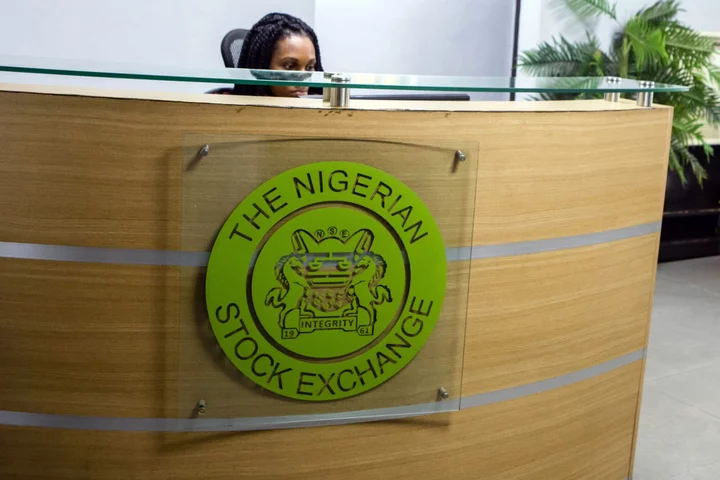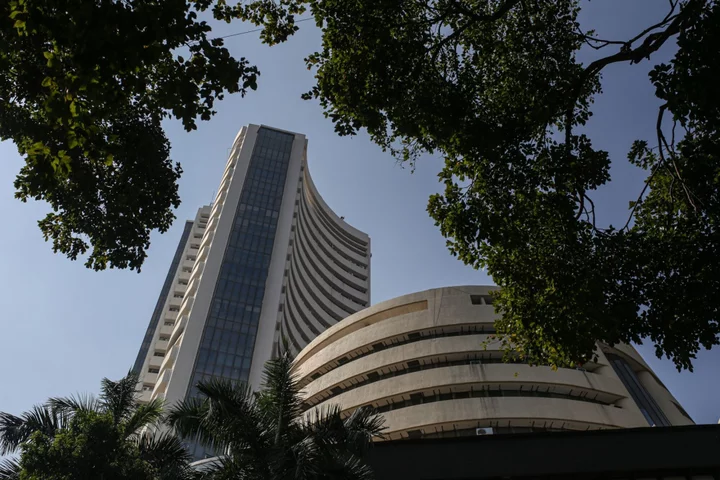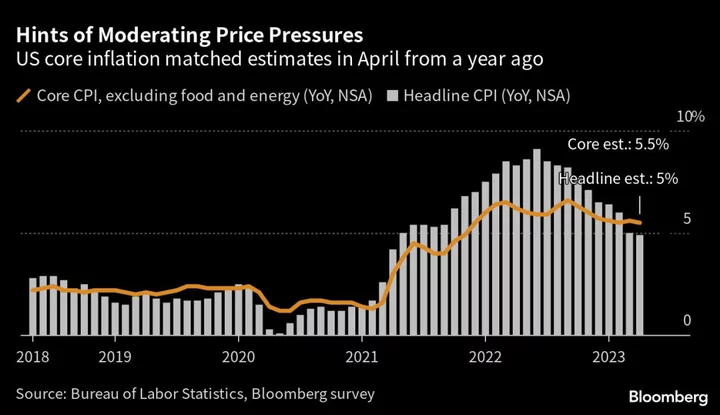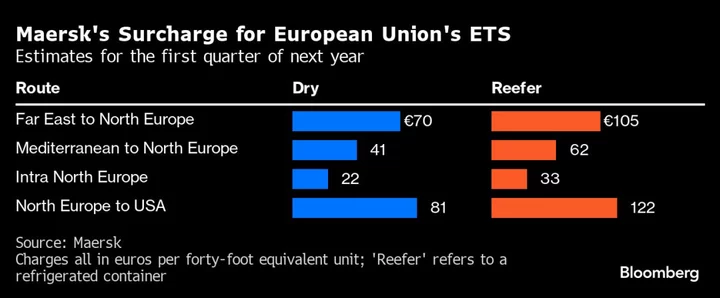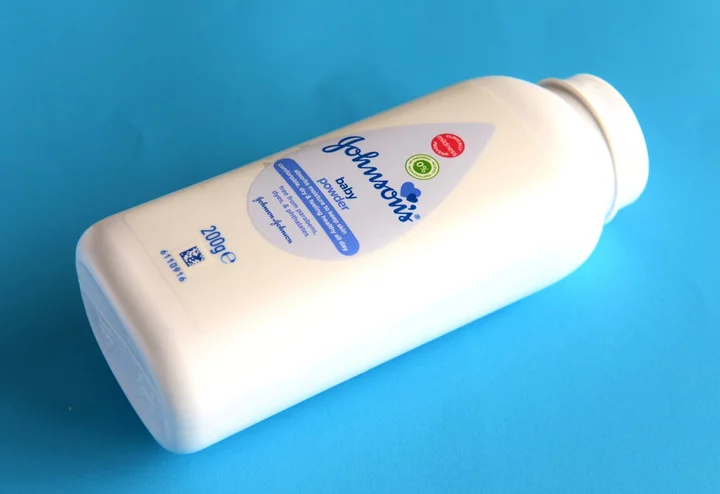Nigeria’s stock market soared to its highest level since July 2008 on Tuesday, the first trading day in Africa’s biggest economy since the ouster of central bank governor Godwin Emefiele.
Investors betting on a currency devaluation sent the main index of the Nigerian Exchange 4% higher on the day to a closing price of 58,164 points, contrasting with a largely flat performance for MSCI’s main emerging equity benchmark. The moves take Nigerian stocks’ year-to-date gains to 13.5%, more than double the return on the MSCI index.
The rally, which follows sharp gains on Nigerian dollar bonds on Monday, reflects optimism over the policy signals so far from newly elected President Bola Tinubu, according to Tajudeen Ibrahim, head of research at Lagos brokerage Chapel Hill Denham.
Tinubu has scrapped costly fuel subsidies, and suspended Emefiele, who was widely blamed for exchange rate policies that crippled the economy. A policy reset is “imminent” to unify the West African nation’s multiple exchange rates,” Wale Edun, an influential member of Tinubu’s advisory board, said.
The NGX Banking Index, whose 10 members have a total market value of 2.54 trillion naira ($5.4 billion) rose 8.8% to 572 points, the biggest advance in more than eight years. It’s now at the highest since March 2018.
“The exchange rate convergence is expected to lead to improvement in liquidity in the foreign currency market and will increase trading activities for the banks,” Ibrahim said.
Meanwhile, pressure is mounting on the naira to fall toward a fairer value. The currency plumbed a new record low earlier on Tuesday, shedding 1.5% to 474 per dollar before recovering to 472.30 as at 6 p.m. in London.
Traders are betting on further depreciation however. Non-deliverable forward contracts on the naira slumped, with the one-month tenor reaching an all-time low of 580 per dollar.
The contract had fallen 8.8% on Monday, its biggest drop since May 2016.
(Updates with the closing prices of the stock index and the naira exchange rate)
Author: Anthony Osae-Brown and Emele Onu

